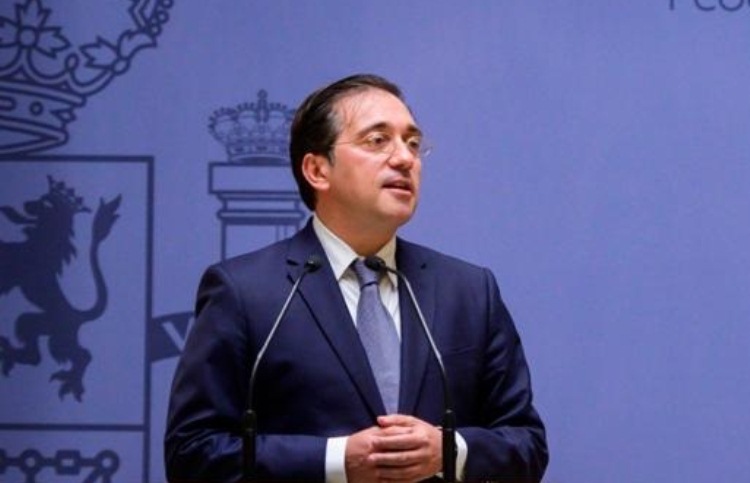The Diplomat
The Minister of Foreign Affairs, European Union and Cooperation, José Manuel Albares, yesterday appealed to the spokespersons of the parliamentary groups in the Congress of Deputies for discretion in order not to reveal details of his efforts to resolve the crisis with Morocco, according to parliamentary sources consulted by The Diplomat.
Albares made initial contact with the aforementioned spokespersons, which was telematic in nature, partly because some of them were already outside Madrid, to inform them of the issues that he has set as priorities when he arrives at the Ministry of Foreign Affairs.
On his Twitter account, the minister referred to the meeting, and stressed that foreign policy must be “a state policy”, an issue which, according to the sources consulted, he insisted on before the MPs, pointing out that it should be a matter that is outside party confrontations.
Among the priorities he has set for himself, Albares highlighted relations with Ibero-America, for which he has recovered the State Secretariat for this area in his department, to which he has added the competences relating to Spanish in the world.
On this point, he informed the spokespersons that, during his recent visit to Peru, where he accompanied the King at the inauguration of the new president, he took the opportunity to hold bilateral meetings with his counterparts from Argentina, Chile and Brazil, to share lunch with those of Cuba, Ecuador, El Salvador and Nicaragua, and to have informal contacts with the rest of the Latin American foreign ministers.
According to Europa Press, Albares alluded to the need to work for respect for human rights in countries such as Cuba, Venezuela and Nicaragua. Some spokespersons asked him why he did not also mention Colombia, but he replied that the situation in that country was not comparable.
The need to restore relations with Morocco after the crisis of last May also came up in the conversation, but the minister did not reveal any details of the steps his department might be taking, appealing to “discretion” and “prudence”. Albares explained that, if both are key in diplomacy in general, they are even more so when it comes to the southern neighbour, with which he aims to consolidate relations and avoid new crises.
Likewise, according to the sources consulted, he pointed out that he considers it more important to focus on finding a solution to the problem than on issues such as the fact that his first trip would have been to Rabat, which did not happen.
The minister also told the MPs about his trip to the United Kingdom to meet with his British colleague, Dominic Raab, and to see the situation of the Spanish Consulate General in London, at a time when many Spaniards in that country are suffering the consequences of Brexit.
He also explained to the parliamentarians that another of the priority objectives that has been set is the development of the agreement with Gibraltar, recalling that the pact reached with London provides for the Rock to become part of the Schengen area once the treaty between the United Kingdom and the EU has been concluded, which would entail the removal of the current fence. He indicated that the end of the fence is expected to take place at the end of this year, although the text makes it clear that the agreement “does not prejudge the question of sovereignty and jurisdiction”.
He also expressed the hope that the vaccination of personnel working abroad could be completed as soon as possible and that the Ministry wants to take advantage of the month of August so that personnel working outside our country, who have not yet been vaccinated, can be vaccinated during their holiday stay in Spain.
He pointed out that, although only around 60% are assigned to the Ministry of Foreign Affairs, his department has taken up the defence of the right to vaccination of all personnel working abroad and has been taking steps where difficulties have been encountered.
In the meeting, which lasted an hour, Albares made himself available to the groups, expressing his predisposition to dialogue with all of them, and the spokespersons asked him to share information with them on a regular basis. The minister summoned them to the appearance that he is expected to make in September in the Lower House.
All parliamentary groups were represented at the meeting, with the exception of Vox.







